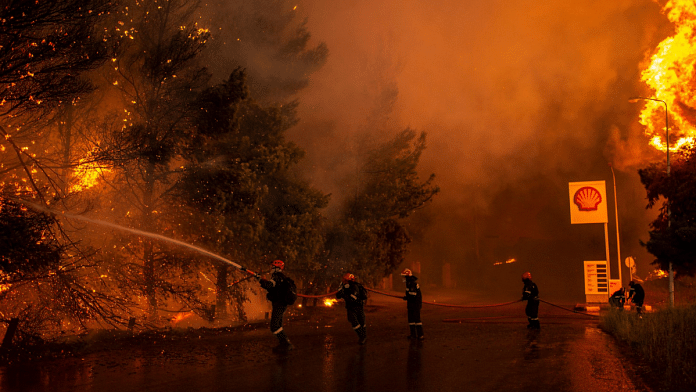- Methane poses more than 80 times the global warming threat of CO2 over a 20-year period.
- But methane emissions remain in the atmosphere for a relatively short time before degrading.
- Cutting methane levels will be felt more quickly than reducing CO2, say climate scientists, helping to reach net zero by 2050.
While the climate change threat posed by carbon dioxide emissions dominates news headlines, methane – the planet’s second most abundant greenhouse gas – has largely slipped under the media’s radar. But methane presents a potentially cataclysmic warming impact, climate scientists have warned.
Urgent action to reduce methane levels is essential to avoid the planet reaching a climate tipping point – irreversible environmental changes that would see temperatures exceed 1.5C above pre-industrial levels – according to the latest assessment report from the United Nations’ Intergovernmental Panel on Climate Change (IPPC).
“Cutting methane is the biggest opportunity to slow warming between now and 2040,” Durwood Zaelke, President of the Institute for Governance and Sustainable Development and a lead reviewer for the IPCC, told The Guardian. “We need to face this emergency.”
But where does methane come from? Why should we be concerned about high concentrations? And what can we do to mitigate its impact?
Measuring methane
Methane is highly effective at heating the planet; although less abundant, it contains more than 80 times the global warming potential of CO2 over a 20-year period. But methane emissions remain in the atmosphere for a relatively short time – around 12 years compared to centuries for carbon dioxide – before degrading, so efforts to cut methane levels will be felt more quickly than with CO2. Curbing these emissions will help rapidly reduce how quickly the planet warms in the short and medium term.
Gauging levels of methane in the planet’s atmosphere isn’t an exact science, but research shows levels are rising fast.
Monthly mean methane levels have increased by around 6% since 2000, and 2020 saw the largest annual increase in atmospheric methane since records began in 1983, according to the National Oceanic & Atmospheric Administration (NOAA).
While around two-fifths of methane emissions occur naturally, the remaining 60% is the result of human activity.
Agriculture is the leading source of human-induced methane, which is responsible for about a quarter of total emissions. Cattle and other livestock reared for the global meat industry emit around 145 MT annually, due to a chemical reaction in their stomachs as they break down plants.
The energy sector comes a close second, with coal, oil, gas and biomass accounting for around 134 MT in 2020. Methane leaks are often the result of poorly managed oil and gas installations, which rely on dated and inefficient infrastructure.
What are the solutions?
The IPCC report calls for strong, rapid and sustained reductions in methane emissions.
Solutions range from changing cows’ diets to upgrading “leaky” fossil fuel infrastructure. With the COP26 climate talks hosted by the UK looming, an agreement by world leaders on curbing methane emissions could be a vital part of efforts to reach net zero by 2050. Much in the same way global legislation helped phase out dangerous ozone-depleting CFC chemicals once commonly used in refrigerants and foam insulation.
Updating or replacing dated oil and gas infrastructure could prevent methane leaking into the atmosphere from old oil and gas wells. While major gas importers like the EU could establish auditing procedures to clean up the gas imports it buys, enforcing measures to better manage, monitor and regulate methane emissions from natural gas imports.
Breaking our reliance on fossil fuels will not begin to cool the planet until around mid-century, scientists say, but cutting methane emissions could have a big impact in the short-term, buying the planet valuable time to meet climate targets.
“Climate change is like a marathon – we need to stay in the race,” Zaelke, told The Guardian. “Cutting carbon dioxide will not lead to cooling in the next 10 years, and beyond that our ability to tackle climate change will be so severely compromised that we will not be able to run on. Cutting methane gives us time,” he said.
A United Nations Environment Programme (UNEP) report shows that a 45% reduction in human-induced methane emissions can be achieved within this decade, preventing nearly 0.3C of global warming by 2045.
Johnny Wood , Writer, Formative Content
This article was previously published in the World Economic Forum.
Also read: The Paris Agreement will help fight climate change. But it’s missing a critical element



